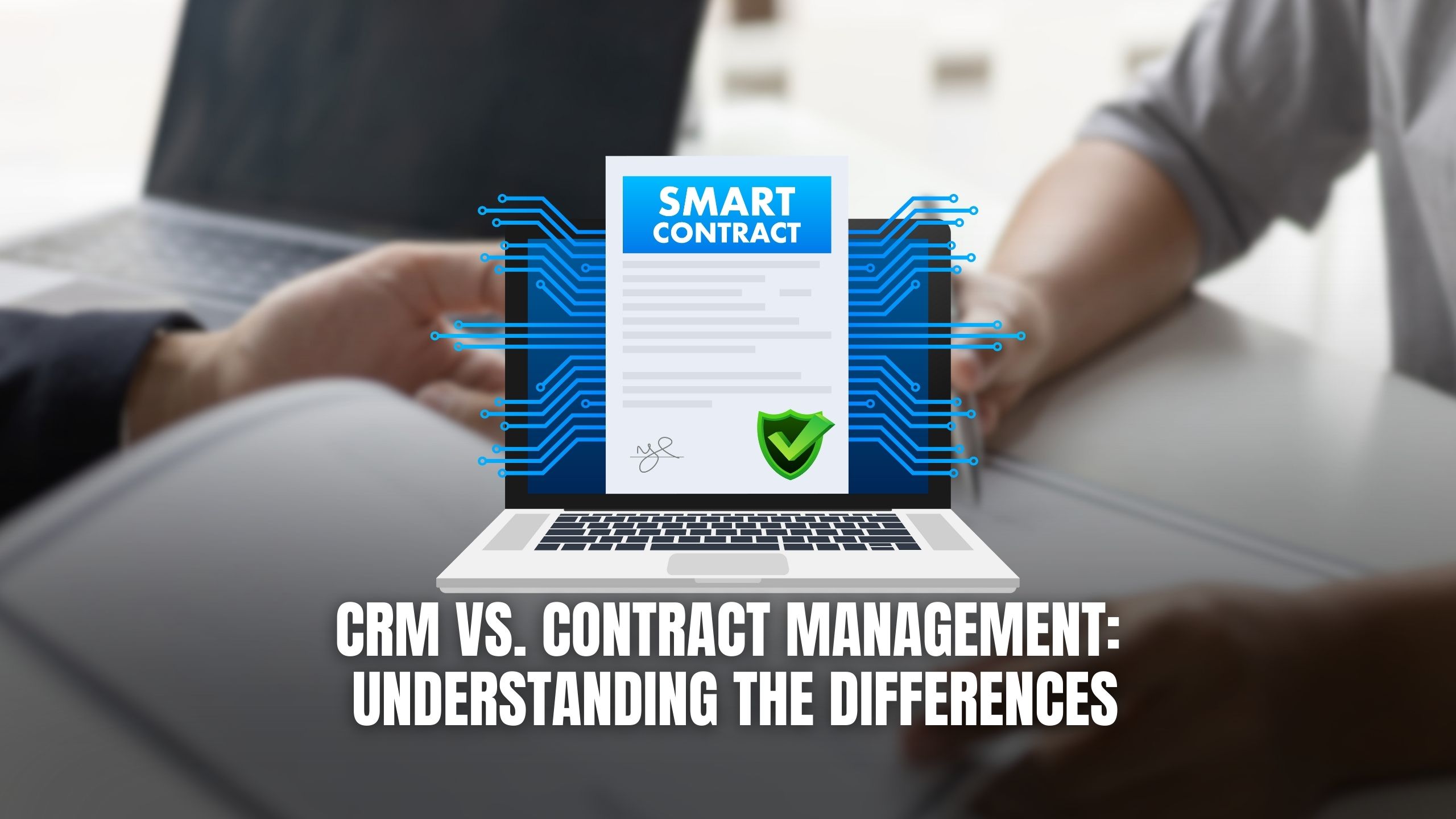CRM vs. Contract Management: Understanding the Differences
- Proposal Software Customer Relationship Management


CRM vs. Contract Management: Understanding the Differences
In the realm of business operations, both Customer Relationship Management (CRM) and contract management are essential components, albeit serving distinct purposes. Let’s delve into the variances between CRM and contract management, exploring their functionalities, objectives, and relevance in organizational workflows.
1. Functionality and Purpose
CRM software focuses on managing interactions and relationships with customers, storing customer data, facilitating sales processes, and enhancing customer engagement. For instance, a CRM system may track customer inquiries, manage leads, and automate follow-up communications to nurture prospects through the sales pipeline. On the other hand, contract management software primarily deals with the creation, negotiation, execution, and analysis of contracts with suppliers, vendors, partners, and clients. This includes drafting contracts, tracking contract revisions, and ensuring compliance with contractual obligations.
2. Scope of Application
CRM systems are widely used across sales, marketing, and customer service departments to streamline processes related to lead generation, pipeline management, and customer support. For example, a sales team might utilize CRM software to track sales opportunities, manage customer communications, and forecast revenue projections. Contract management solutions, however, are primarily utilized by legal, procurement, and contract administration teams to ensure compliance, manage risk, and optimize contract lifecycles. This involves negotiating contracts with vendors, reviewing contract terms, and overseeing contract renewals and terminations. Explore a wide range of CRM tools to find the perfect fit for your business, offering tailored solutions for all your customer management needs.
3. Data Management and Integration
CRM platforms centralize customer data, including contact information, communication history, purchase patterns, and preferences, enabling businesses to personalize interactions and improve customer satisfaction. With CRM integration, businesses can synchronize customer data across various systems, such as marketing automation tools and email platforms, to deliver seamless customer experiences. Contract management systems centralize contract documents, metadata, and key dates, providing visibility into contractual obligations and facilitating compliance monitoring. Integration with enterprise resource planning (ERP) systems and document management platforms ensures consistency and accuracy in contract data management. To save on these solutions, check the Topmate Deals Page for exclusive offers on CRM and contract management software.
4. Workflow Automation and Collaboration
CRM software often includes features for workflow automation, email marketing, and team collaboration, streamlining sales processes and improving team productivity. For instance, automated lead scoring and routing mechanisms help sales teams prioritize leads and allocate resources effectively. In contrast, contract management tools offer automation capabilities for contract creation, approval workflows, and renewal notifications, facilitating efficient contract administration and reducing manual errors. Collaborative features, such as document sharing and electronic signatures, streamline contract negotiations and improve communication between stakeholders.
5. Reporting and Analytics
CRM systems typically offer robust reporting and analytics features, allowing businesses to track sales performance, customer engagement metrics, and revenue forecasts. Through customizable dashboards and data visualization tools, sales managers can gain insights into sales pipelines, conversion rates, and customer churn rates. Contract management platforms provide insights into contract status, expiration dates, renewal rates, and compliance metrics, empowering organizations to make informed decisions and mitigate risks. Advanced analytics capabilities enable contract managers to identify contract bottlenecks, assess vendor performance, and optimize contract terms for better outcomes.
Recommended SaaS Products:
- Salesforce CRM: Streamline sales processes and enhance customer relationships with Salesforce CRM’s comprehensive suite of sales, marketing, and service solutions.
- HubSpot CRM: Simplify customer relationship management with HubSpot CRM’s intuitive platform, offering tools for lead management, email marketing, and customer support.
- DocuSign: Accelerate contract execution and improve workflow efficiency with DocuSign’s electronic signature and contract lifecycle management solutions.
- ContractSafe: Simplify contract management and ensure compliance with ContractSafe’s cloud-based platform, featuring contract storage, search, and reporting capabilities.
- Concord: Optimize contract workflows and streamline collaboration with Concord’s contract management software, designed to simplify contract creation, negotiation, and approval processes.
Conclusion
In conclusion, while both CRM and contract management are crucial components of business operations, they serve distinct purposes and cater to different aspects of organizational management. CRM focuses on customer interactions and sales processes, whereas contract management centers around legal agreements and vendor relationships. Understanding the differences between CRM and contract management is essential for businesses to effectively leverage these tools and optimize their operations.
Simplify Your Business Operations with Subscribed.fyi!
Looking to streamline your business operations and optimize your SaaS stack? Unlock exclusive deals on CRM, contract management, and other essential tools with Subscribed.fyi. Sign up for free today to access savings on top-tier solutions, empowering you to enhance productivity and make informed decisions about your SaaS tools.
Relevant Links:








